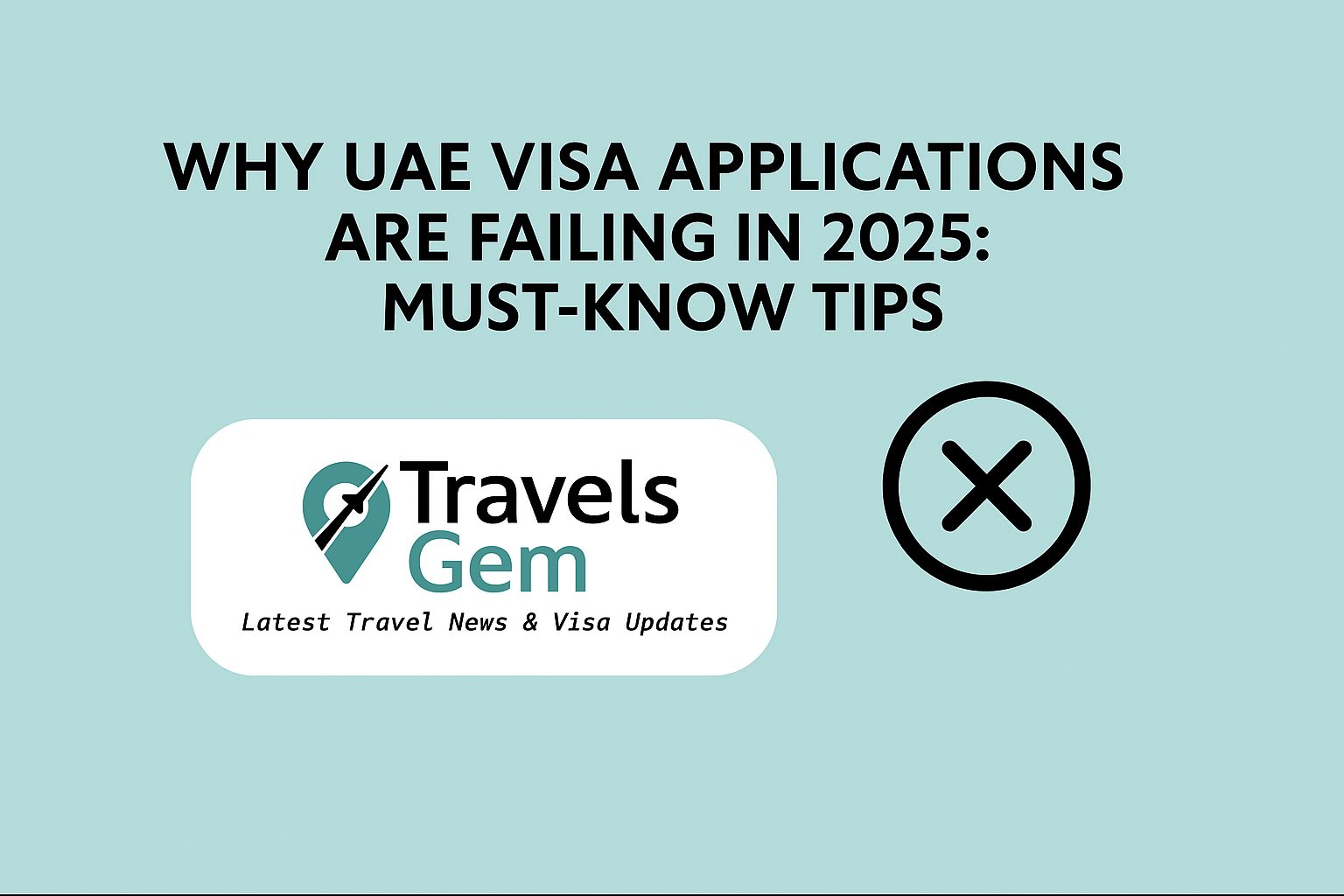The United Arab Emirates (UAE), home to iconic destinations like Dubai and Abu Dhabi, continues to captivate travelers with its blend of luxury, culture, and opportunity. Yet, in 2025, a sharp rise in visa rejections has left many applicants, particularly from countries like India, Pakistan, and Nigeria, facing unexpected hurdles. Reports indicate a 62% surge in denials, with daily rejection rates climbing from 1-2% to 5-6%. Stricter regulations introduced in late 2024 aim to enhance security, curb illegal overstays, and prioritize high-value visitors. This article uncovers the root causes of these rejections, outlines updated requirements, and provides actionable strategies to boost approval chances, ensuring travelers can plan confidently without financial or emotional setbacks.
Root Causes of Rising Visa Denials
The UAE’s tightened visa policies reflect a strategic shift to safeguard national interests while maintaining its status as a global hub. Key factors driving the 2025 rejection surge include:
- Enhanced Security Measures: The UAE has intensified background checks to prevent security risks, targeting applicants with criminal records or suspicious travel histories. This includes automated systems flagging inconsistencies in identity or documentation.
- Crackdown on Visa Misuse: Authorities are targeting job seekers posing as tourists, a common issue among South Asian applicants. Overstays and unused visas signal potential intent to work illegally, triggering rejections.
- Economic Prioritization: The UAE aims to attract high-spending tourists and investors. Applications lacking strong financial proof or clear travel intent are scrutinized heavily, especially from countries with high rejection rates like Pakistan (up to 99% in some cases).
- Documentation Errors: Incomplete or inaccurate submissions account for 71% of rejections. Common mistakes include mismatched personal details, blurry scans, or missing financial records.
- Geopolitical Restrictions: Certain nationalities, including those from Nigeria, Uganda, and Kenya, face travel bans or heightened scrutiny due to issues like fraudulent certificates or security concerns.
These policies have led to significant financial losses, with travelers reporting up to ₹34,000 in non-refundable bookings per rejected application. The emotional toll of disrupted plans further underscores the need for thorough preparation.
Updated Visa Requirements for 2025
To secure a UAE tourist visa in 2025, applicants must adhere to rigorous standards. Below are the essential requirements, reflecting the latest regulations:
- Valid Passport: Must have at least six months’ validity from the entry date. Handwritten passports, prevalent in countries like Pakistan and Bangladesh, are rejected outright.
- Accommodation Proof: Submit verifiable hotel bookings with QR codes or, for stays with hosts, provide the host’s Emirates ID, residency visa, rental contract, and contact information.
- Travel Itinerary: Include confirmed round-trip flight tickets or a detailed travel plan. Unverified or dummy tickets are flagged for rejection.
- Financial Evidence: Provide three months’ bank statements showing a minimum balance of AED 5,000 (₹1.14 lakh) for a two-month visa or AED 3,000 for a three-month visa. Upon entry, a cash balance of ₹50,000 is required. A PAN card is mandatory for hotel bookings.
- Accurate Application: Ensure no errors in name, passport number, date of birth, or profession code. Passports listing unskilled professions (e.g., laborer, farmer) are often denied.
- High-Quality Documents: Submit clear, legible scans of passports and photos adhering to UAE specifications (bright, correct size). Blurry or non-compliant images lead to denials.
Special considerations:
- Female travelers under 25 traveling solo may face delays due to anti-trafficking measures.
- Applicants with prior overstays, unused visas, or criminal records are likely to be rejected or blacklisted.
- Nationalities from countries like Nigeria or the Democratic Republic of Congo may face automatic denials due to travel bans.
Strategies to Avoid Visa Rejection
To maximize approval chances, travelers should adopt a meticulous approach. Here are practical tips based on current trends and expert insights:
- Verify Document Accuracy: Double-check all application details against your passport. Ensure names, dates, and codes match exactly. Use professional scanning services for clear, high-resolution images.
- Strengthen Financial Proof: Maintain a consistent bank balance above the required threshold for at least three months. Supplement with income certificates or sponsorship letters to demonstrate stability.
- Cancel Prior Visas: If you hold an active or unused UAE visa (tourist, employment, or residence), cancel it through your sponsor or travel agency before reapplying. Uncanceled visas are a leading rejection cause.
- Choose the Right Visa Type: Align your visa category with your travel purpose. Applying for a tourist visa with work-related intentions raises red flags.
- Use Trusted Agents: Opt for reputable visa services like Amer Centre or DubaiVisaServices.co.uk to minimize errors. Avoid unregulated agents charging exorbitant fees or providing fake documents.
- Demonstrate Home Ties: Provide proof of ties to your home country, such as employment letters, property deeds, or family commitments, to assure authorities of your intent to return.
- Check Travel Bans: Confirm your nationality’s status with UAE immigration or consulates, as certain countries





